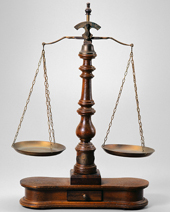A revised victims’ code from the Ministry of Justice sets out 12 rights. They are:
You have the right to be given information easy to understand and to be provided with help to be understood, including, where necessary, access to interpretation and translation services;
– to have details of the crime recorded by the police as soon as possible after the incident. If you are required to provide a witness statement or be interviewed, you have the right to be provided with additional support to assist;
to receive written confirmation when reporting a crime, to be informed about the criminal justice process and to be told about services for victims, such as meeting with the suspect or offender, restorative justice;
– to be referred to services that support victims, to contact them directly, and to have your needs assessed so services and support can be tailored. If eligible, you have the right to be offered a referral to specialist support services;
– to be told about how to claim compensation for loss, damage or injury caused as a result of crime;
– to be updated on your case and to be told when important decisions are taken. You also have the right, at certain stages of the justice process, to ask for decisions to be looked at again;
– to make a Victim Personal Statement, which tells the court how the crime has affected you;
– to be told the time, date and location of any hearing and the outcome of those hearings in a timely way. If you are required to give evidence, you have the right to be offered appropriate help before the trial;
– to be told the outcome of the case and, if the defendant is convicted, to be given an explanation of the sentence. If the offender appeals against conviction or sentence, you have the right to be told;
– if you attend court and give evidence, you have the right to claim expenses;
– referred to the Victim Contact Scheme; and
– to make a complaint.
Welcome
Sussex Police and Crime Commissioner (PCC) Katy Bourne welcomed simplification and shortening of the code.
She said: “I’m pleased to see greater flexibility about the presentation of personal impact statements and the improved signposting to help that is available from the National Health Service, as well as the guidance for victims who may be approached by the media when they feel distressed and traumatised.
“I echo the sentiments of experts in victims‘ services that we would like to see further legislation to support victims to ensure they get a consistent and appropriate response that is enshrined in law and not subject to localised interpretations.”
The new code follows a consultation in spring 2020 and will come into force in April. Visit the MoJ website. The original Victims’ Code came into effect in 2006 as part of the Domestic Violence, Crime and Victims Act 2004; and was updated in 2013 and 2015.










